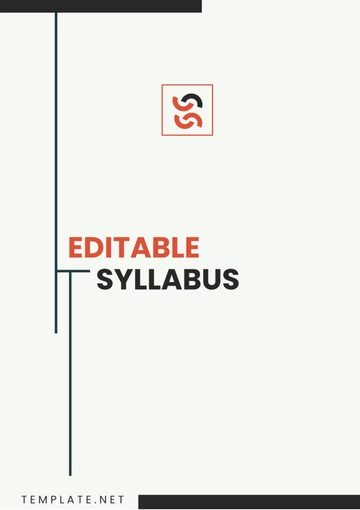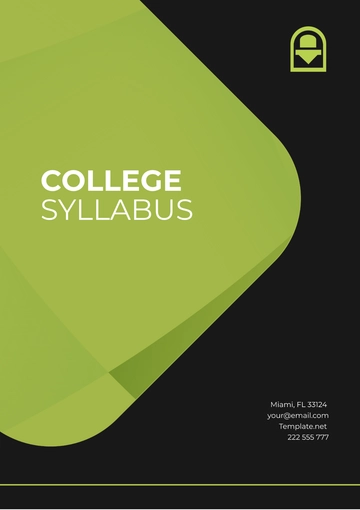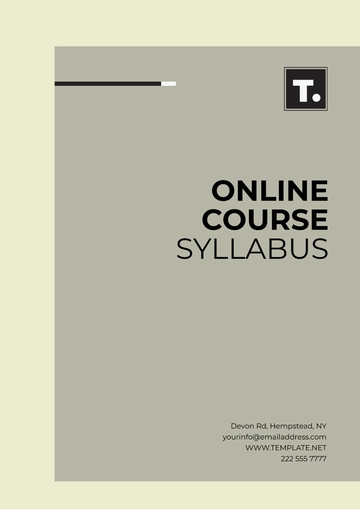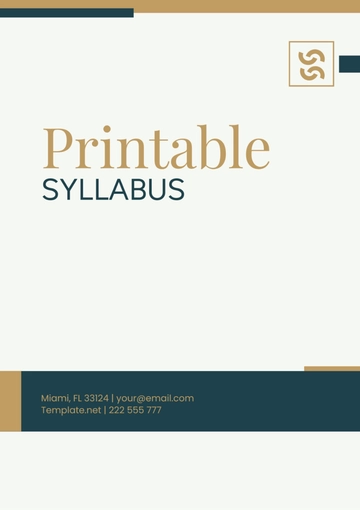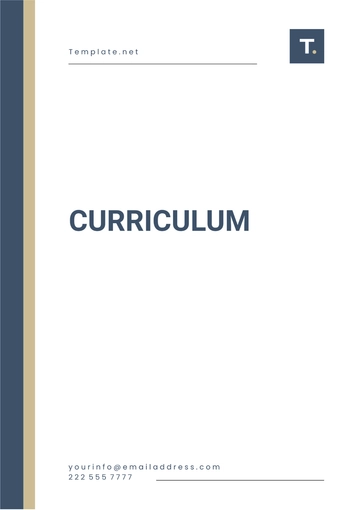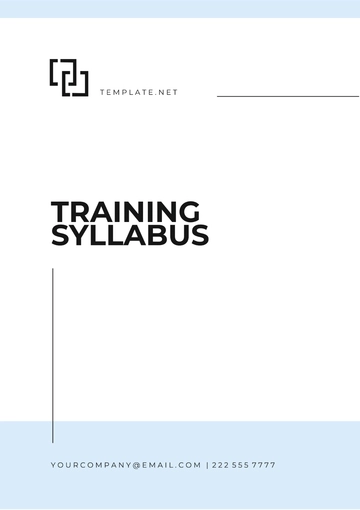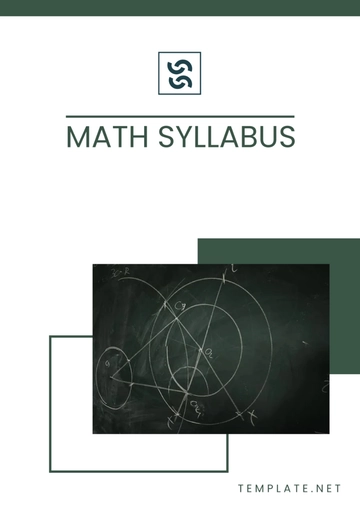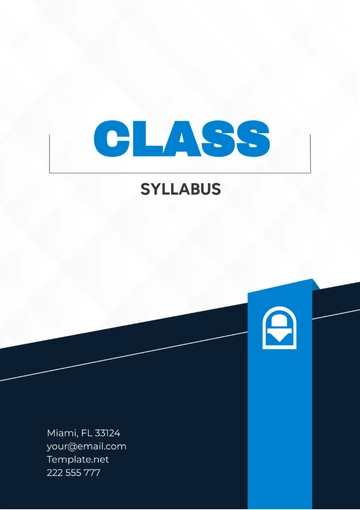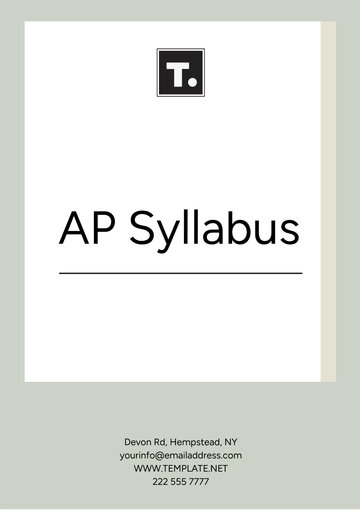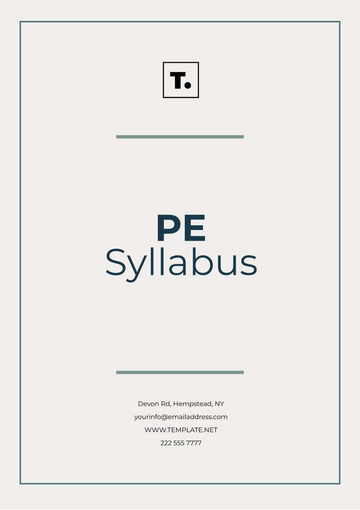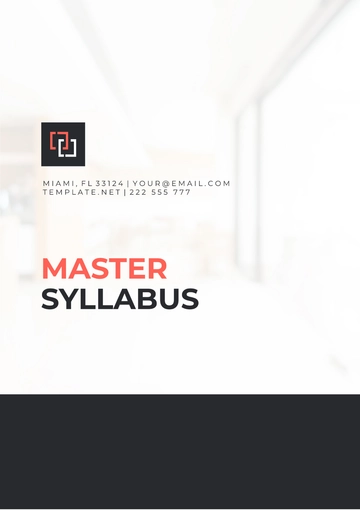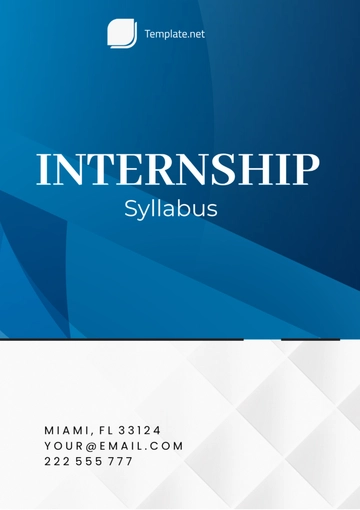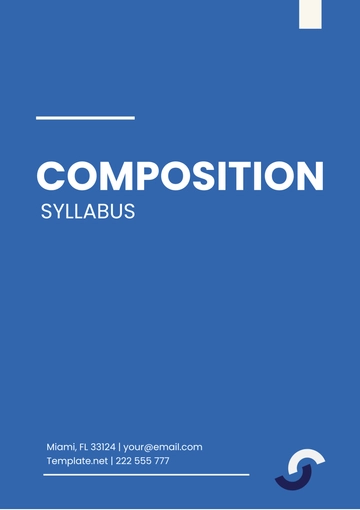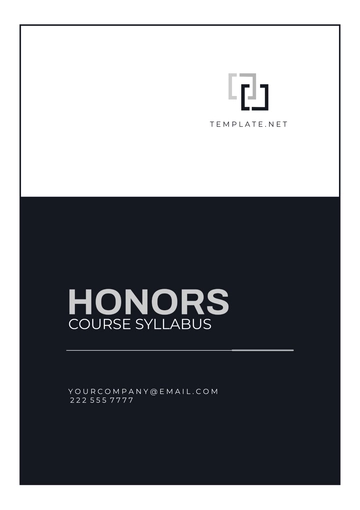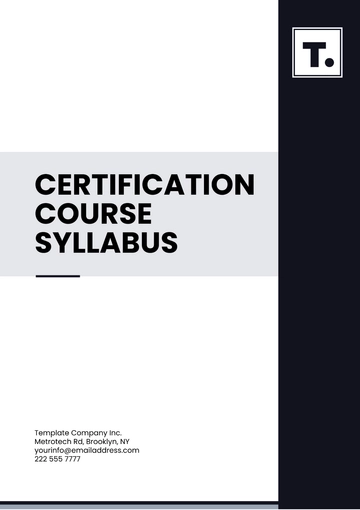Free Chemical Engineering Syllabus
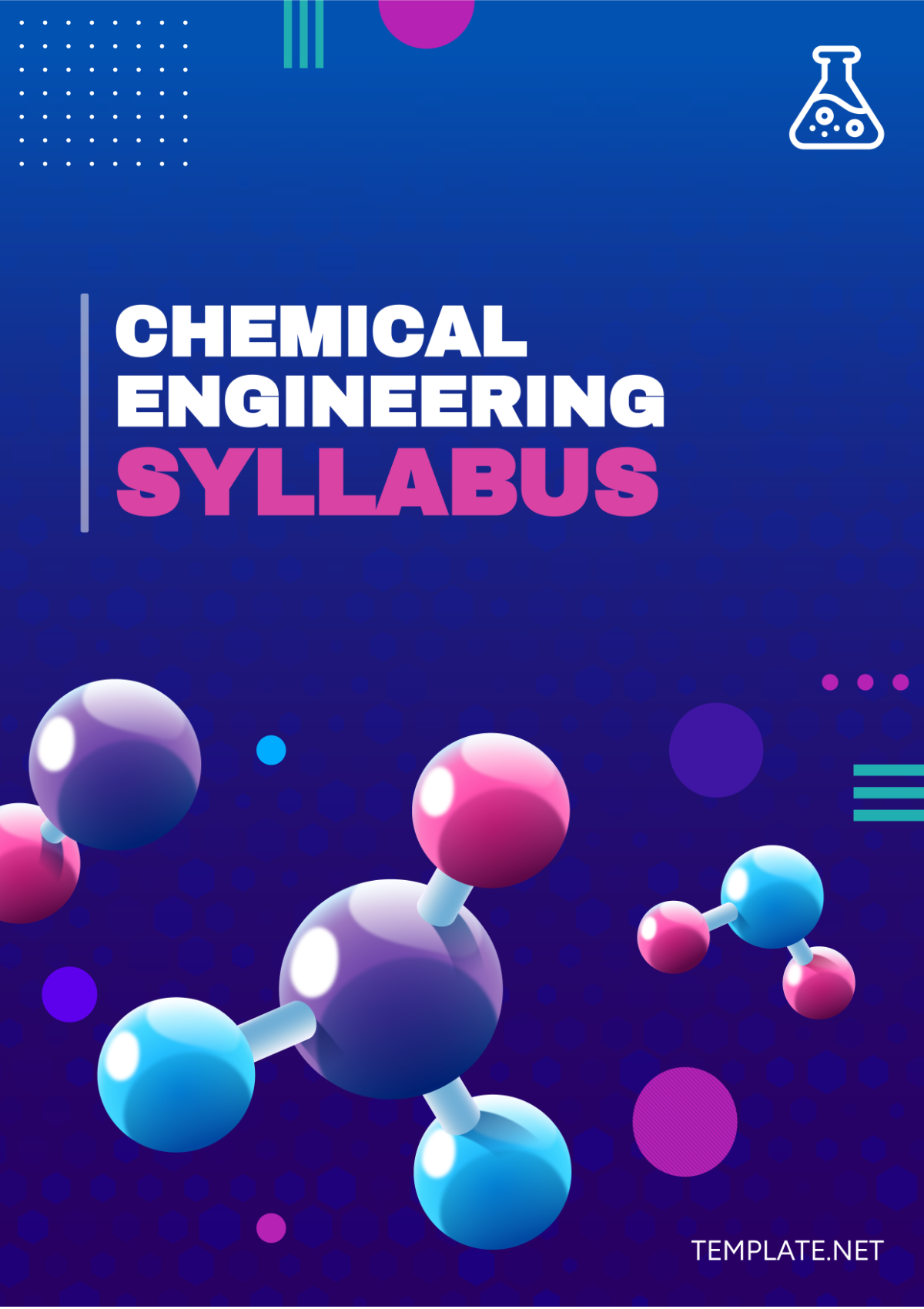
Chemical Engineering Syllabus Course
Course Title: | [COURSE TITLE] |
Credits: | [CREDITS] |
Instructor: | [INSTRUCTOR] |
Schedule: | [SCHEDULE] |
Location: | [LOCATION] |
Textbook: | [TEXTBOOK] |
Description: | [DESCRIPTION] |
Assessments: | [ASSESSMENTS] |
Grading: | [GRADING] |
Office Hours: | [OFFICE HOURS] |
1. Course Description:
This course provides an in-depth study of the principles and practices of Chemical Engineering. It focuses on critical chemical engineering topics, their applications, and significance in the field of engineering. It is designed to equip students with a comprehensive understanding of chemical processes and their associated technologies.
2. Instructor Information:
Instructor: [YOUR NAME]
Organization: [YOUR COMPANY NAME]
Email: [YOUR EMAIL]
3. Learning Objectives:
To develop a comprehensive understanding of major chemical engineering principles.
To analyze chemical processes and evaluate their efficiency and safety.
To apply mathematical models to predict and solve real-world chemical engineering problems.
To design and conduct experiments using standard chemical engineering tools.
To comprehend the ethical and professional responsibilities of a chemical engineer.
4. Course Schedule:
Week | Topic | Readings |
|---|---|---|
1 | Introduction to Chem Eng |
|
2 | Fluid Mechanics |
|
3 | Thermodynamics |
|
5. Required Reading and Materials:
"Principles of Chemical Engineering" by John Doe.
"Introduction to Chemical Processes" by Jane Smith.
OHP-320, a standard chemical engineering software tool.
A scientific calculator capable of performing complex mathematical operations.
A safety kit for laboratory sessions, including a lab coat, gloves, and safety goggles.
6. Assignments and Assessments:
Bi-weekly quizzes on recently covered topics to evaluate learning and comprehension.
Home assignments involving problem-solving and simulation tasks.
A group project to design a small-scale chemical process, involving its complete lifecycle.
Mid-term and final exams to assess overall understanding and application of course content.
Participation in class discussions and lab sessions, which adds to final grading.
7. Course Policy:
Attendance is mandatory for all lectures and lab sessions.
Maintain academic integrity, any case of plagiarism will be dealt seriously.
All assignments should be submitted before the deadline. Late submissions will affect grades.
All students must adhere to the safety protocols during lab work.
The course follow the [YOUR COMPANY NAME]'s policy of a respectful and inclusive learning environment.
8. Grading Policy:
Grades will be assigned based on the following criteria: Quizzes (20%), Assignments (30%), Group Project (20%), Midterm & Final Exams (25%), Class Participation and Laboratory work (5%).
9. Disclaimer:
The syllabus, including schedule, topics, and policies, is subject to change. Any changes will be communicated to the students well in advance. It is the student's responsibility to stay updated and conform to the course policies at all times.
- 100% Customizable, free editor
- Access 1 Million+ Templates, photo’s & graphics
- Download or share as a template
- Click and replace photos, graphics, text, backgrounds
- Resize, crop, AI write & more
- Access advanced editor
Discover the ultimate solution for crafting your Chemical Engineering syllabus effortlessly with Template.net. Our editable and customizable Chemical Engineering Syllabus Template, available in our Ai Editor Tool, empowers educators to tailor their curriculum with precision and ease. Streamline your syllabus creation process today!

